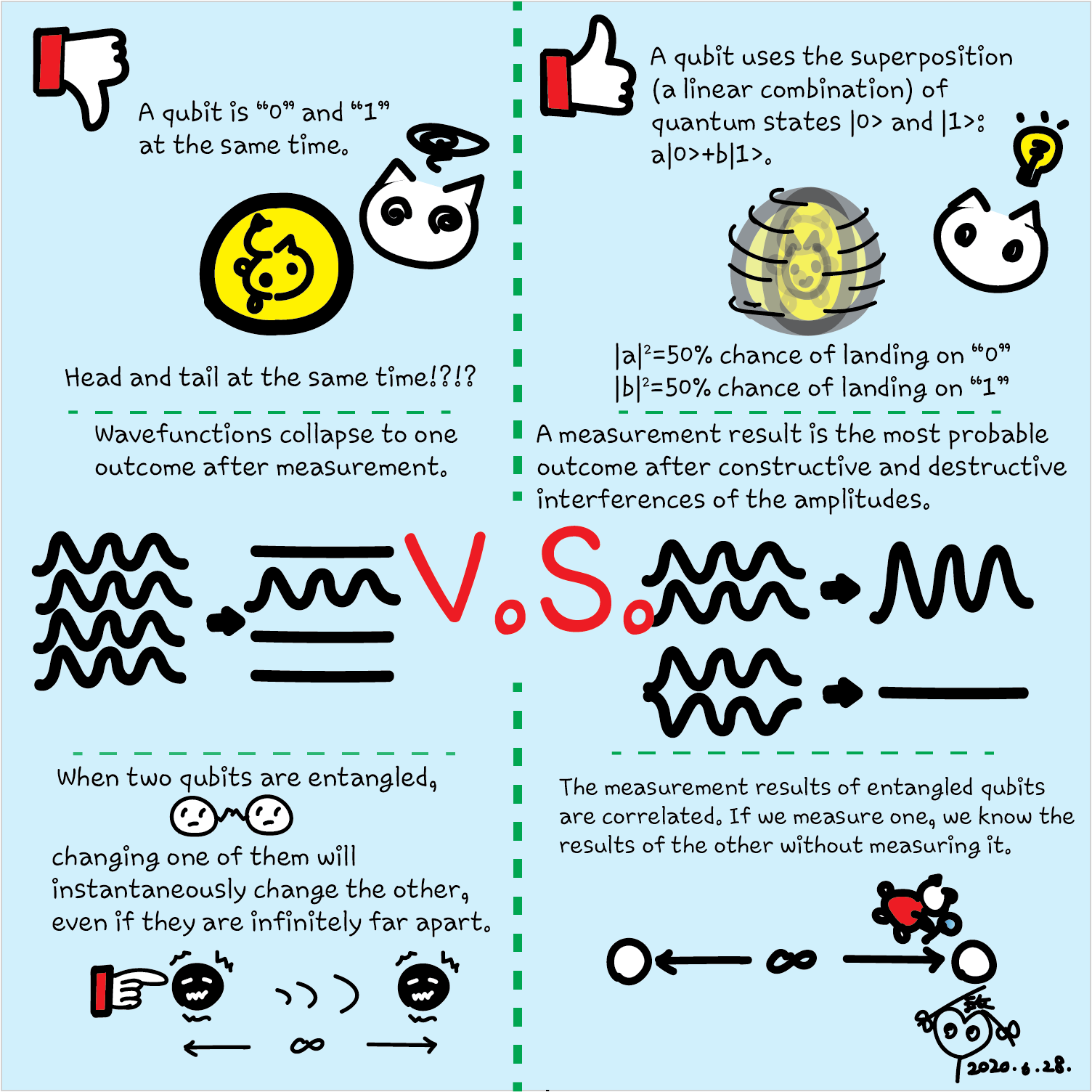You might have heard of the terms on the left which cause much confusion and myths about quantum computing. We should update with the correct descriptions on the right.

A course class for Quantum Computing through Comics
Follow here for comics and classes on Quantum Computing updates every week.
You might have heard of the terms on the left which cause much confusion and myths about quantum computing. We should update with the correct descriptions on the right.
Discussions
Become a Hackaday.io Member
Create an account to leave a comment. Already have an account? Log In.
Although I like and appreciate the "practical hands-on approach" to quantum mechanics you are presenting here, I think the picture sometimes get oversimplified by your "demystification attempts". I might quote Feynman here: "If you think you understand quantum mechanics, you don't understand quantum mechanics." Entanglement IS mysterious, and simply rewording descriptions doesn't take that away. I don't think that "being correlated" is in any way less mysterious than "instantaneous change". Experiments like the delayed-choice quantum eraser experiment just defy our "common sense" of reality on so many levels... reality is not what it seems. Just my 2 cents.
I found this great discussion about the "delayed-choice quantum eraser experiment" - it seems I am left with the choice of having to become an Everettian, or accept retro-causality - both of these violate my sense of reality on many levels:
https://www.preposterousuniverse.com/blog/2019/09/21/the-notorious-delayed-choice-quantum-eraser/
Are you sure? yes | no
Thank you for the comments. I just saw it. The problem with phrases like "instantaneous change" is that it misleads people to think that any kinds of "change" would be instantaneously communicated from one qubit to the other qubit. The key point here is "measurement". The measurement results are correlated so that one doesn't need to measure the second qubit if they've measured the first one. "Change" however can include other alterations to the qubit, such as applying a gate. When we apply an X gate, for example, that changes one qubit from 0 to 1, it doesn't instantaneously change the other qubit from 0 to 1.
Are you sure? yes | no
it is definitely a much easier way of explaining superposition and entanglement.
I think the biggest issue is people tend to overthink things, we're pretty much beat over the head with the classical model of particles from birth and then that gets turned on its head when you start looking at how things actually work at the lowest level.
I find when I'm having trouble it helps to just picture the subatomic particle as a ball of water, just bouncing around all nonchalant until you stop looking at it and it mischievously decides to spill all over the place, then quickly forms back up into a ball when you go to look at it again... Like it's possessed by some kind of poltergeist lol
Are you sure? yes | no